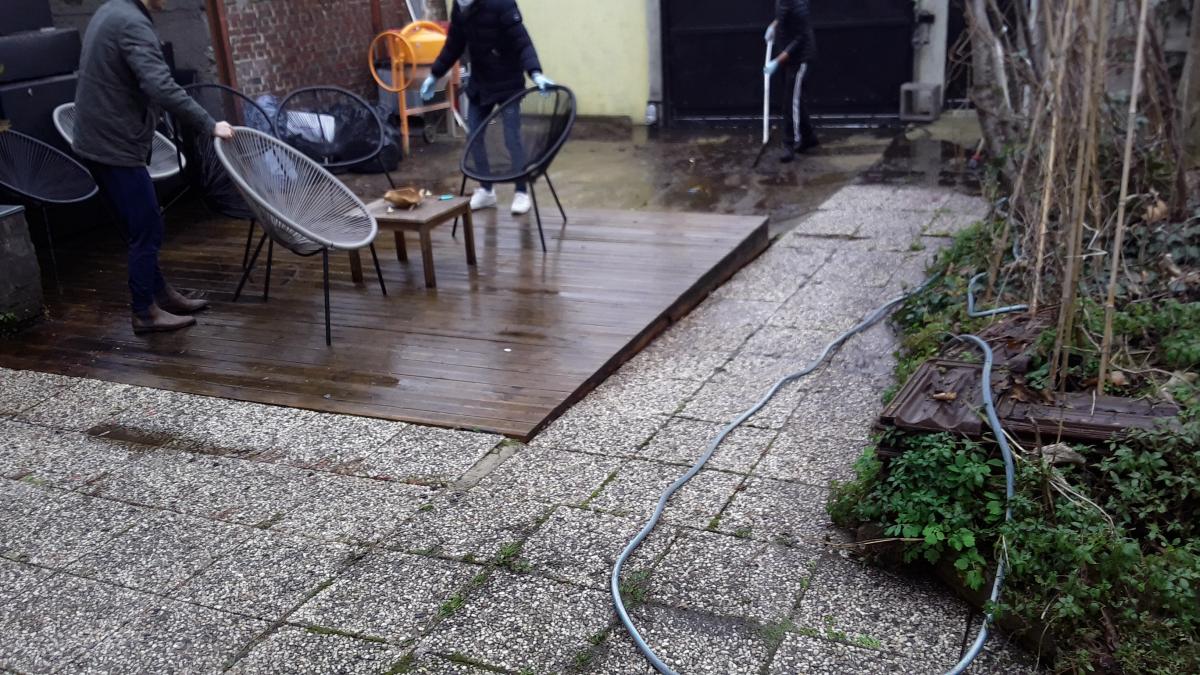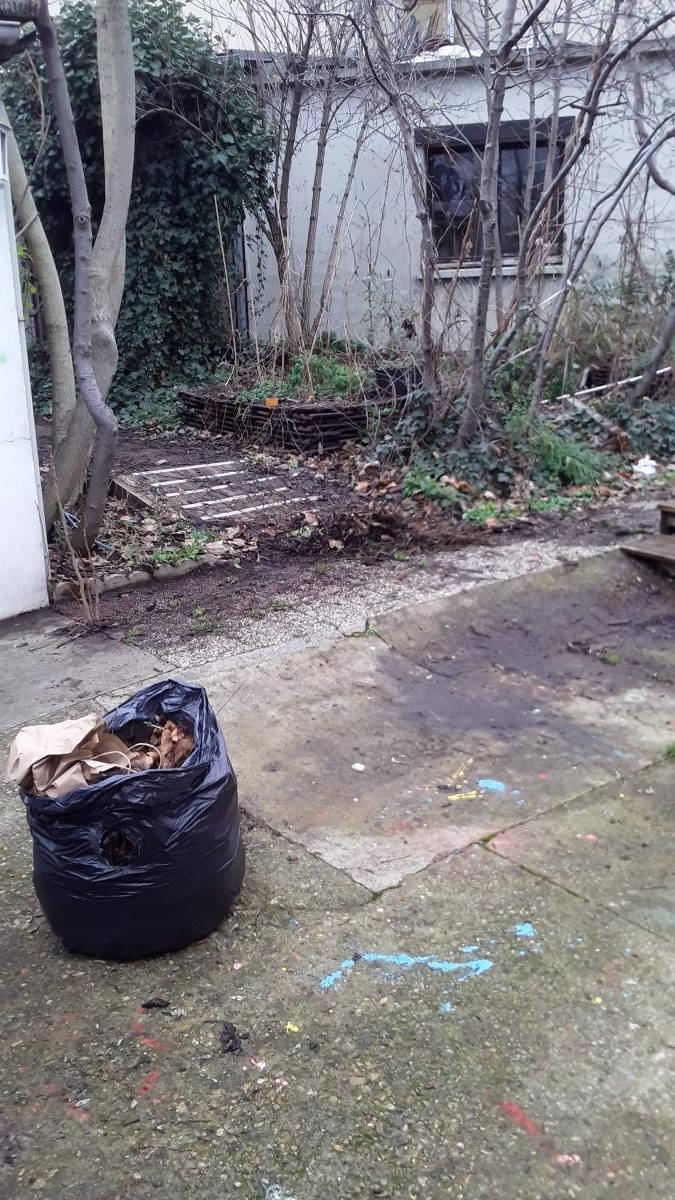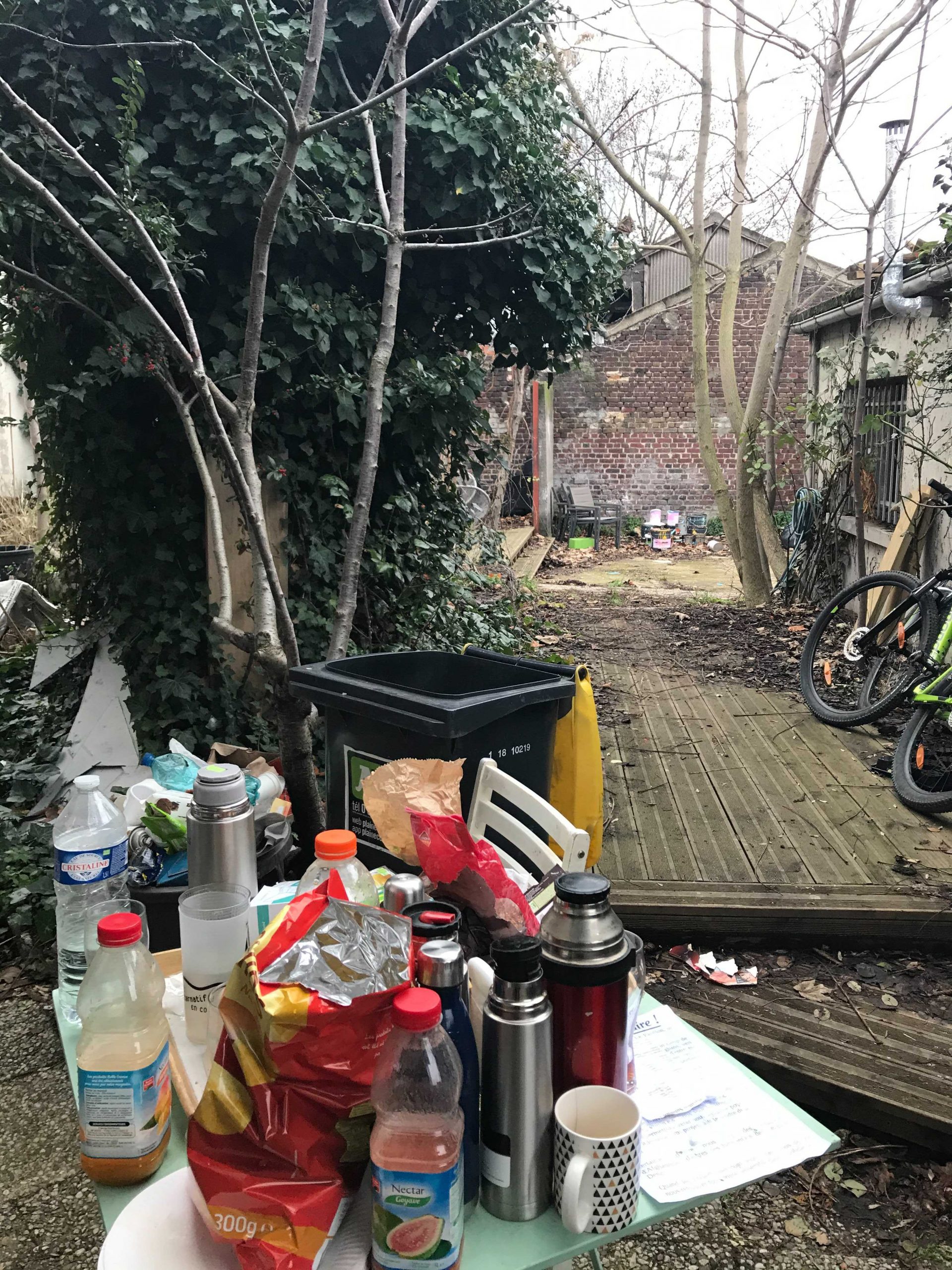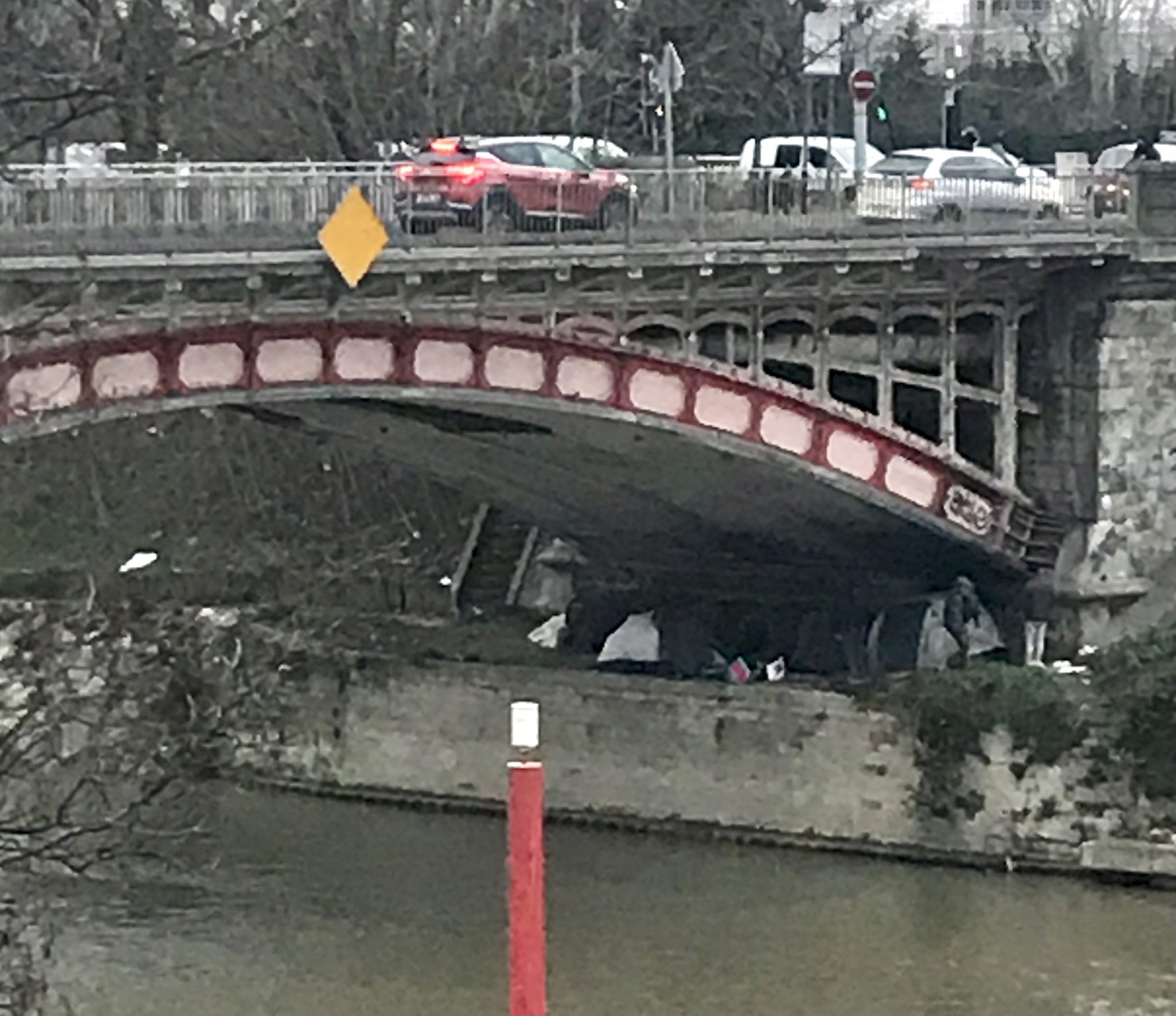
Qu’est ce tu vois lorsque tu te balades a travers l’île Saint Denis- sur les bords de Seine, en dessous des ponts, à travers les squares et les parcs ? Ici et là, des personnes désespérées se cachent dans des tentes, dans des constructions fragiles, faites de plastique et de bois, derrière des buissons, dans n’importe lequel des trous qu’ils peuvent trouver. Ils tentent d’échapper au froid et aux policiers, qui les pourchassent avec leurs matraques, leurs chiens et du gaz lacrymogène.
Durant les dernières semaines, nous avons pu constater, à plusieurs reprises, que personne n’utilisait le bâtiment du Pavillon en chantier. Qu’est-ce que nous avons vu ? Que les portes étaient restées ouvertes, que les poubelles étaient remplies à ras bord et qu’il y avait des détritus partout. Que les travaux étaient à l’abandon, qu’une odeur nauséabonde de nourriture laissée dans des frigos éteints se répandait partout, que le jardin était recouvert de feuilles mortes, que le bâtiment était franchement moisi.
Triste cliché de nos jours, que de vivre des scènes dignes d’un film de zombie. Ça y ressemble vraiment, une maison abandonnée dont les habitant.e.s ont fui l’Apocalypse. Une maison qui pourrait être un refuge pour échapper au froid et à la menace constante du monde extérieur.
Nous avons investi le bâtiment. Maintenant nous rangeons, réparons des choses et l’on s’organise pour s’entraider avec les voisins. Le pavillon est devenu un toit pour ces personnes qui ont traversé l’hiver dans le froid. Mais aussi nous tenons à ce que le bâtiment ne soit pas abandonné une seconde fois. Dans les prochains mois cela deviendra un endroit ouvert et la vie y reviendra, il sera à la fois une maison de quartier, un lieu de sociabilité, un centre culturel et un vecteur d’entraide et d’organisation pour le voisinage.
Est-ce qu’on aurait dû attendre la fin de la crise du covid? Est-ce que nous devons attendre que les autorités fassent quelque chose?
Pour nous, c’était très clair : d’un côté nous avons des gens sous les ponts qui ont froid et de l’autre côté il y a des bâtiments laissés à l’abandon. Mais le monde institutionnel à une logique différente reposant sur des règles, des budgets, des subventions et des enjeux électoraux.
En suivant la logique officielle, beaucoup de choses restent possibles. On peut construire des centres commerciaux comme Marques Avenue, on peut bâtir en bétonnant des écoquartiers (avec des appartements à prix élevés, quelques arbres en décoration feront l’affaire pour un éco-label), on peut organiser un grand show mondial de jeux olympique à plusieurs milliards d’euros co-financé par Total. Tous ces projets, eux, continuent ; malgré la pandémie du covid et l’urgence sanitaire, contrairement aux « travaux » dans ce pavillon.
Par contre on ne peut pas faire quelque chose qui pourrait aider ceux qui se terrent dans des parcs ou font la manche dans la rue. C’est comme ça que le monde fonctionne, et c’est hors de notre contrôle, nous apprend-t-on.
Nous refusons d’accepter cette logique officielle. Nous ne voulons pas vivre dans un monde de zombie. Nous avons des idées différentes de comment le monde peut être. Nous pouvons investir des bâtiments à l’abandon pour leur redonner vie, aider des réfugiés à dormir au chaud et ne pas mourir d’hypothermie, et se rencontrer avec les voisin.e.s, apprendre à s’aider les un.e.s les autres pour changer les choses.
Nous ne pouvons pas reste assis et attendre que quelqu’un.e enfin fasse quelque chose, nous devons prendre des initiatives. La solidarité n’est pas juste un mot- elle prend vie avec l’action.
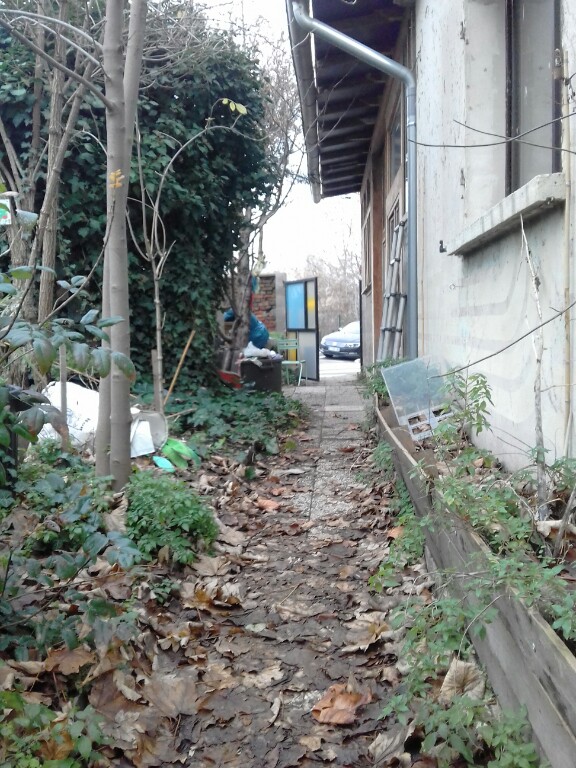
What do you see when you take a walk around L’Ile Saint Denis – along the river banks, under the bridges, through the squares, the park? Everywhere desperate people hiding in tents, in flimsy constructions of plastic and wood, in the bushes, in any hole they can find. Hiding from the freezing cold, and hiding from the police with their batons, dogs and choking gas.
Over the weeks before the occupation we checked inside the Pavillon several times, we wanted to be completely sure no one was using it. What did we find? The doors left open, rubbish piled up, mould growing everywhere, building work unfinished, foul stench of food left to rot, the garden clogged up with leaves, the building literally rotting.
These days it’s a cliché to say we’re living in scenes from a zombie movie. But that’s just what it seemed like, an abandoned house whose inhabitants have fled the apocalypse. A house that could provide a shelter from the cold and fear outside – at least for a few people, at least for a little while.
So we occupied the building. Now we’re cleaning it up, fixing things, and organising with our neighbours. It is a shelter for some people through this hard winter. But also, we want to make sure it isn’t abandoned again, but in the next months it really becomes open and alive again: a social, cultural and organising space for the neighbourhood.
Should we have waited for the end of the COVID crisis? Should we have waited for the authorities to do something?
To us, it seemed clear: on the one hand, you have people freezing under a bridge, on the other, a building literally left to rot. But the official world has a different logic involving regulations, registrations, budgets, subventions, political deals.
Following the official logic, a lot of things are possible. You can have shopping malls like Marques Avenue, you can build so-called Ecoquartiers (yet more high-price concrete apartments, with a few extra trees), you can organise the multi-billion dollar world spectacle of the Olympics. And all these big-profit projects keep going despite COVID. Yet you can’t do anything to help people sleeping in the park or begging for coins in the street. That’s just how the world is, it’s “beyond our control”.
We refuse to accept this official logic. We don’t want to live in a zombie world. We have different ideas of how the world can be. We can bring empty buildings back to life, bring people out of the cold, get together with our neighbours, help each other, learn from each other, and start to change things.
But then we can’t just sit and wait for others to act, we have to take the initiative. Solidarity isn’t just a word – it comes to life with action.
